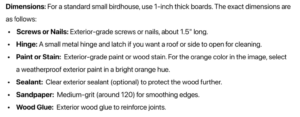
The average UK house price hit a record £298,083 in November, according to an index.
Halifax reported a 1.3% rise in property values month-on-month, marking the fifth consecutive increase. On a yearly basis, house prices grew by 4.8% in November, up from 4% in October.
Market analysts say this boom could be closely tied to the upcoming Stamp Duty changes.
Jonathan Hopper, CEO of Garrington Property Finders, said: “The UK housing market is showing signs of momentum, particularly among first-time buyers eager to complete purchases before Stamp Duty thresholds change at the end of March.
The temporary stamp duty thresholds are due to expire in April, resulting in the “nil rate” band for first-time buyers dropping from £425,000 to £300,000.
“Hesitation has turned to hurry in some parts of the market, especially among first-time buyers who racing to complete their purchases before the Stamp Duty thresholds change.
“This sense of urgency is prompting some buyers to view in haste and offer high in order to secure a home now and complete their purchase before the tax changes take effect.
“This will be music to the ears of sellers, many of whom have been forced to hold down their asking prices and accept lower offers for much of this year as the supply of homes for sale outstripped demand.”
Mr Hopper continued: “But this buoyancy, which is pumping up average prices and could easily turn into another ‘Stamp Duty stampede’ as the deadline approaches, is far from universal.
“Momentum is building, particularly in the mainstream market. There’s a clear financial incentive for people to act quickly, and this is injecting pace into the market heading into 2025.
“We’re likely to see more activity in Q1 than we would normally expect, as buyers rush to exchange contracts before the deadline.”
This increased urgency is expected to have a ripple effect. Mr Hopper said: “When a first-time buyer purchases a home, it frees up another rung on the property ladder, creating demand elsewhere.”
Mr Hopper also highlighted improving economic conditions, including possible interest rate cuts and stable employment figures, as factors that could drive a more active market next year.
He said: “With the ingredients of much-stipulated interest rate drops, employment numbers looking stronger and maybe a bit of a stronger sense that there’s more certainty and there isn’t another key moment like an election or a big budget happening that could hold the market back. I think we will see the market gain more momentum next year.”
While optimistic about 2025, Mr Hopper cautioned that the recovery won’t be uniform, suggesting: “Mainstream is going to probably outperform top end of the market. Buyers at the higher end of the market are more discussion-led and currently have more choice, which gives them the upper hand in negotiations.”
Looking ahead, Mr Hopper predicts modest growth in property prices, forecasting: “I think we’ll see prices rise next year, perhaps by 2% to 3%. House prices are just going to drop down a gear [after stamp duty thresholds revert] rather than break.”
Mr Hopper added: “Any time that governments interfere with the taxation on properties it has an effect. Obviously, we saw the stamp duty holiday. That was one of the things that caused the boom post-pandemic, and this is a very small version of that.
“There is a clear line where there is financial advantage to get it done before what sits after it.”
Subsequently, Mr Hopper suggested the usual spring uptick in market activity could arrive earlier than usual in 2025. He said: “Traditionally we see the uptake connectivity happening in the spring market. I think some of that is going to take place in the first month of the year rather than the middle part of the year.”
Although the market is regaining strength, Mr Hopper noted: “I don’t think it will be a steady picture. While the mainstream market will likely gain pace, the top end is still feeling the effects of recent turbulence and has more negotiating room for buyers. That will likely keep growth there more subdued.”
“I don’t think we’re going to necessarily see falling house prices, but I think we’ll certainly see weaker demand and some people will have brought transactions forward.”
















